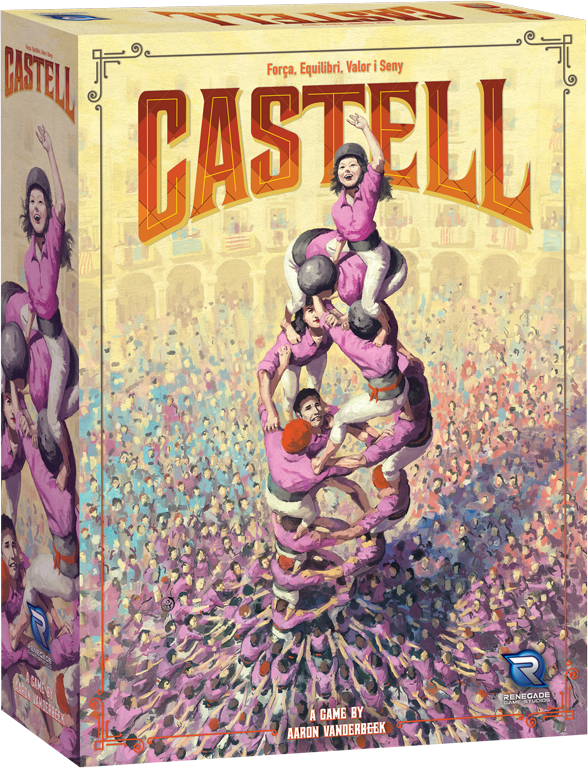Castell
Couldn't load pickup availability
Delivery and Shipping
Delivery and Shipping
For more details, please refer to our Shipping and Order Information.
Description
Description
| Designer | Aaron Vanderbeek |
| Publisher | Renegade Game Studios |
| Players | 2-4 |
| Playtime | 60-90 mins |
| Suggested Age | 12 and up |
| Additional Info | BoardGameGeek (Images, Videos, Reviews) |
Castell is the vibrant Catalan tradition of building human towers. Huge teams of people from all over Catalonia gather at festivals to celebrate Catalan culture and compete to build the highest and most difficult human towers.
Castell is a strategy game in which players guide castell teams through a year of festivals. Visit Catalan cities, expand your team of castellers, learn tower-building skills, and show off your tower-building prowess at local performances and festival competitions.
Harness your strength, balance, courage, and common sense to take your team to victory!


